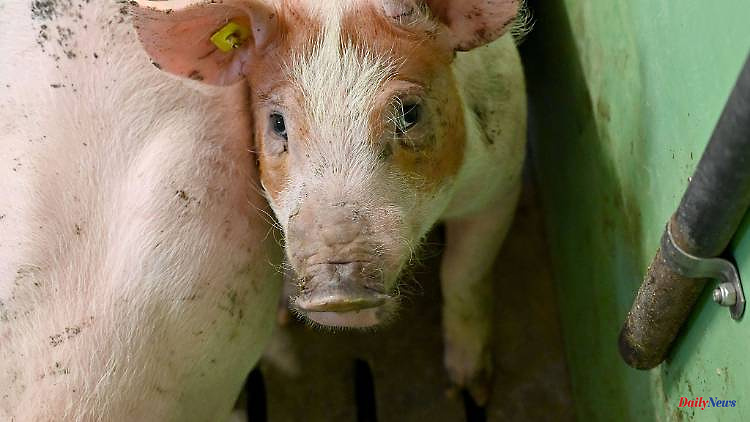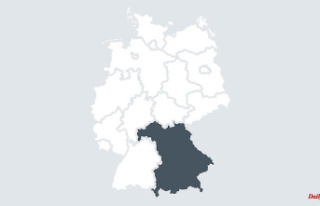More requirements, high investments, competition from abroad: according to the farmers' association, animal owners in Hesse have to contend with many problems. This is not without consequences for cattle and pig stocks either.
Wiesbaden/Friedrichsdorf (dpa/lhe) - Too much bureaucracy, no successors for the farms and also fear of the wolf among grazing animal owners - according to the Hessian Farmers' Association, there are many reasons for the decline in livestock. Farmers in Hesse are keeping fewer and fewer cattle and pigs. According to the State Statistical Office in Wiesbaden, the numbers have been falling continuously since 2016. In 2016, 579,200 pigs including breeding piglets were counted, in 2022 it was 403,800. In the same period, the number of cattle including calves and dairy cows fell from 454,400 to 396,700.
"The farms have been struggling with more and more challenges in recent years," said the farmers' association at the request of the German Press Agency. For example, extensive conversion measures are necessary due to changes in the animal welfare or livestock husbandry ordinance. This is especially true for sow husbandry. There is a sprawling bureaucracy that has made everything more complicated. There is a lack of workers or successors for the farms and the areas are becoming increasingly scarce and with them the lack of fodder. Livestock farmers are also afraid of wolves.
The farmers' association called for the conversion of animal husbandry to be carried out quickly. Stable financing and at the same time changes in building and approval law as well as more planning security are needed.
For pet owners, the business is becoming less and less profitable. "Especially in the pig sector, the producer revenues have not covered costs for years," said the farmers' association. There are general cost increases, such as wages, materials, energy and fuel. Although milk prices are currently high, not all farms have been able to break even in recent years.
In addition, competition from abroad is troubling animal owners. According to the association, there are ever higher requirements in Germany that do not exist in other countries. It can be produced more cheaply there and then exported to Germany. In the Corona pandemic, people would have cooked more at home again and bought regional and ecological products, but there were still losses because many major events had been cancelled. "Since consumers have known that energy prices will rise as a result of the Ukraine war, they have been spending less money on groceries and are turning to discounter products."
The decline in animals is also reflected in a downward trend among keepers. According to the farmers' association, the number of cattle farms fell from 10,061 to 7,442 between 2011 and 2021. The number of pigs fell from 1,600 to 600 in the same period.
According to the Landesbetrieb Landwirtschaft Hessen, cattle farming is the strongest source of income in Hessian animal production. Meat consumption per person in Germany was 55 kilograms in 2021, with pork accounting for the largest share at around 31 kilograms. According to the State Statistical Office, the number of slaughtered animals has also fallen across the country in recent years.












